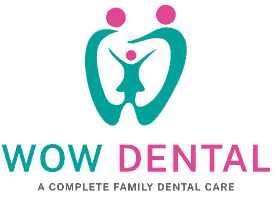What is Dry mouth?
Dry mouth also known as xerostomia is a condition in which the salivary glands in the oral cavity does not make enough saliva to keep mouth wet. Saliva helps prevent tooth decay by neutralizing acids produced by bacteria, limiting bacterial growth and washing away food particles. Saliva also enhances your ability to taste and makes it easier to chew and swallow. In addition, enzymes in saliva aid in digestion.
How to identify Dry mouth?
Decrease in salivary flow and inability to wet mouth can result in
- Stickiness in mouth
- Dental decay
- Taste alteration
- Soreness in mouth and throat.
- Difficulty in chewing, swallowing and speaking.
- Foul odour
- Coating over tongue.
- Fungal and bacterial oral infections
- Burning sensation.
What are the reasons for Dry mouth?
Medications: including antihistamines, hypertensive medications, and antideprasants.
Age: Even though dry mouth is not a natural part of aging, older adults tend to take more medications than the rest of the population. Many of the medications taken by seniors cause dry mouth.
Cancer treatment: Radiotherapy to the head and neck can damage the salivary glands, resulting in less saliva being produced. Chemotherapy can alter the nature of the saliva, as well as how much of it the body produces.
Injury or surgery: This can result in nerve damage to the head and neck area can result in dry mouth.
Tobacco: Either chewing or smoking tobacco increases the risk of dry mouth symptoms.
Dehydration: This is caused by lack of sufficient fluids.
Exercising or playing in the heat: The salivary glands may become dry as bodily fluids are concentrated elsewhere in the body. Dry mouth symptoms are more likely if the exercise or playing continues for a long time.
Some health conditions, illnesses, and habits can cause dry mouth, such as:
- Anxiety disorders
- Depression
- HIV/AIDS
- Parkinson’s disease
- Poorly controlled Diabetes
- Sjögren’s syndrome
- Sleeping with the mouth open
- Snoring
How to prevent Dry mouth?
- Sipping non-carbonated, sugar-free fluids.
- Chewing gum that contains xylitol.
- Using a carboxymethyl cellulose saliva substitute as a mouthwash.
- Avoiding mouthwashes that contain alcohol.
- Not wear dentures during sleep.
- Eating foods such as carrots or celery.
- Breathing through the nose, as this does not dry the mouth to the same extent as breathing through the mouth does.
What are the treatment options for Dry mouth?
Treatment for dry mouth depends on several factors such as whether the patient has an underlying condition or disease, or is taking certain medications that may be causing dry mouth.
Your Dentist will help you in the treatment of dry mouth by assessing the condition and understanding the underlying cause. Treatment includes prescription of artificial saliva or medication that stimulates production of saliva.
